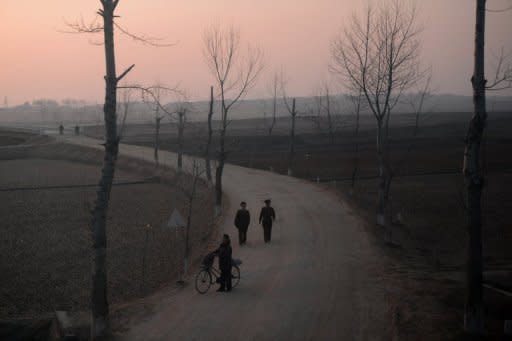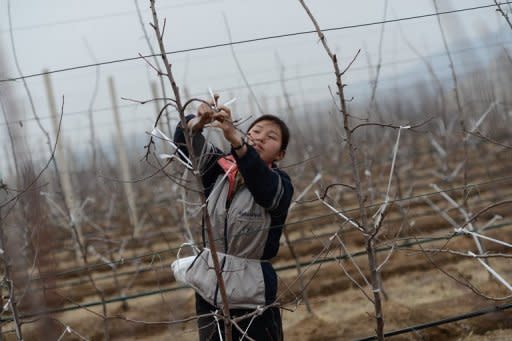N. Koreans suffer chronic food shortages: UN
Millions of North Koreans suffer chronic food shortages and dire health care, leaving one in three young children stunted, but there are no signs of reform to spur economic growth, the United Nations warns. Some 16 million people -- two-thirds of the population -- depend on the state rationing system and suffer varying degrees of sustained food insecurity, six UN agencies operating inside the North said in a report released Tuesday. About one in three children aged under five are stunted -- too short for their age -- because of malnutrition, it said, as it launched an appeal for funding. UN Resident Coordinator for North Korea Jerome Sauvage said although the food situation was not as bad as it was last year, child malnutrition rates in some parts of the country were "alarming". "This year our surveys and assessments do not indicate we will have as serious a food problem (as last year). Therefore we do not anticipate as wide an appeal for food," he told AFP in Beijing. But he added: "We see among children malnutrition rates in a number of counties we have been visiting that are really alarming. Now these are chronic malnutrition problems. There is never enough food for this population." Last year, government rations dwindled to just 250 grammes of food per person per day, Sauvage said, and Pyongyang issued a rare appeal for foreign aid. This year the food situation has improved but "being DPRK (North Korea), the agriculture is extremely fragile", he said. "All it takes is a winter that's been slightly too long, not quite enough rain at critical moments, or a flood later on during the rainy season for the agriculture to really be severely affected." Reclusive North Korea suffers chronic food shortages, but the situation is frequently exacerbated by floods, droughts and mismanagement. The official food distribution system, part of the state-directed but moribund economy, largely collapsed during the famine years of the mid- to late-1990s. There are no official tallies, but hundreds of thousands of people are believed to have died in the famine. International food aid has dwindled due to rows over the North's missile and nuclear programmes. The United States suspended a plan to deliver 240,000 tonnes of food after the North's latest rocket launch, on April 13. The UN report said North Korea's health care system is "in dire shape", plagued by frequent power cuts and with less than 30 percent of essential drug needs covered. The North is the only Asia-Pacific country not on track to meet Millennium Development Goals on reducing child mortality, improving maternal health and combating disease, says the report dated May 29. Inadequate access to safe water and poor sanitation, coupled with poor hygiene, are mainly to blame for the high incidence of diarrhoea among the under-fives. The report says natural disasters such as floods and landslides, worsened by the deforestation of slopes, pose serious threats to life. The UN says the structural causes of food shortages can only be fully addressed through government policy changes, but stresses that humanitarian assistance does save lives. It says UN agencies need $198 million for their activities in the North this year but less than 40 percent of this had been donated as of May. While there were "currently no signs" that the government would undertake any of the structural reforms needed to spur economic growth, it has begun to publicly acknowledge severe food shortages, the UN says. In January 2011, for the first time in seven years, it made an official request for international food aid. But limitations on access for aid workers persist. "The government often places unacceptable constraints on access" required by humanitarian agencies, the report says.



